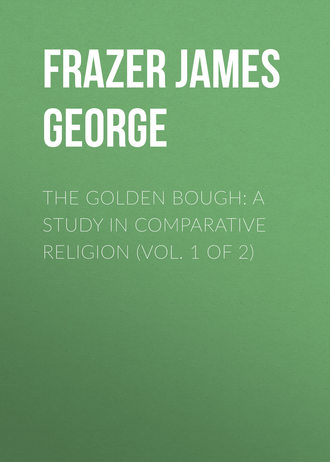The Golden Bough: A Study in Comparative Religion (Vol. 1 of 2)
 полная версия
полная версияThe Golden Bough: A Study in Comparative Religion (Vol. 1 of 2)
Язык: Английский
Год издания: 2017
Добавлена:
Настройки чтения
Размер шрифта
Высота строк
Поля
 полная версия
полная версия